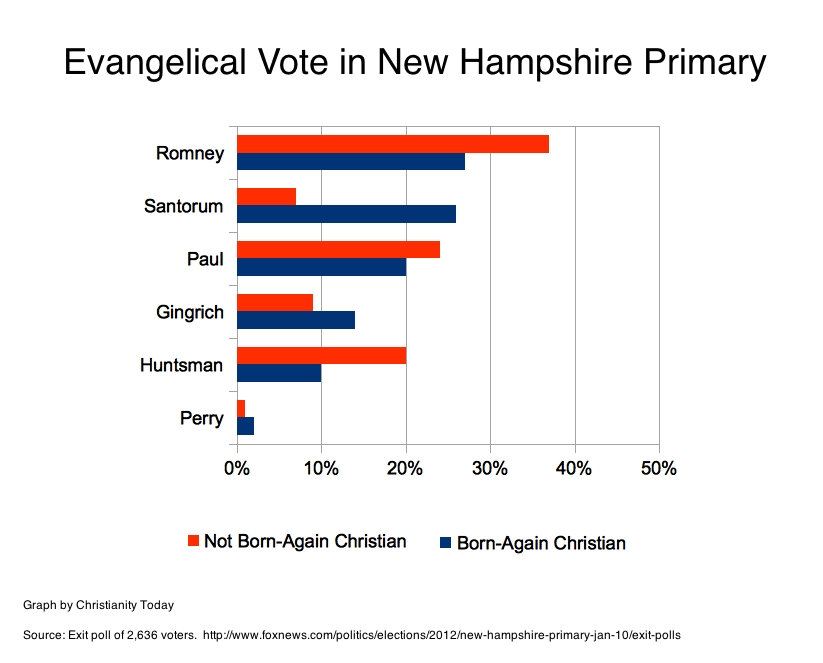Mitt Romney won the New Hampshire primary. His margin of victory may have been smaller than predicted, but there was one surprisingly strong result: Romney tied Rick Santorum for the lead among evangelical voters (around 26 percent each). Romney did twice as well among born-again Christians in the Granite State than he did last week in the Hawkeye State.
The primary voters in New Hampshire are, on average, more moderate than caucus goers in Iowa. New Hampshire has fewer evangelicals and more Catholics and non-religious voters than Iowa. But evangelicals are evangelicals, and Romney seems to have made significant ground among this key part of the Republican coalition.
These results could be an anomaly, but it may also signal a new dynamic to the race. The conventional wisdom was that the social conservative voters were splitting their vote. As candidates like Michele Bachmann dropped out, they would shift their support to another social conservative candidate. In the first test of this, the only difference between the evangelical vote in New Hampshire and Iowa was the vote for Romney. With Rick Perry and Michele Bachmann no-shows in New Hampshire, Romney seems to have picked up the difference in the evangelical vote.
The same pattern holds for other key parts of the GOP base. Romney won the plurality of votes among those who said they were “conservative” in politics. Among those who described themselves as “very conservative” on social issues like gay marriage and abortion, Romney and Santorum tied with 27 percent of the vote.
Ron Paul continued to get his 20 percent of the evangelical vote, as he did in Iowa. Huntsman did worse among evangelicals than those who are not (10 vs. 20 percent). Santorum did far better among born-again Christians. The former Pennsylvania senator did nearly four times as well among evangelicals than other voters (26 vs. 7 percent).
Because evangelicals made up only one-quarter of the primary voters in New Hampshire, their influence is smaller than in Iowa or in this Saturday’s primary in South Carolina. Still, if Romney had done as poorly with evangelicals as he did in Iowa, his margin of victory could have slipped into the single digits. This weekend, a strong showing among evangelicals could mean the difference between a win or a loss in South Carolina.









